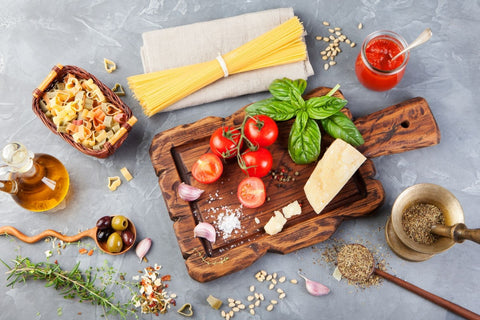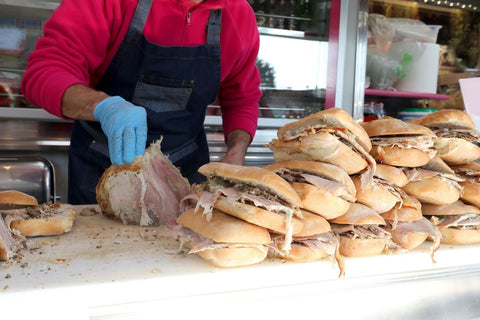Yes, we can definitely eat well and healthy during this season. Here are some simple tips.
Staying healthy during this beloved holiday season
It can be really challenging, but that doesn't mean it's impossible! We can definitely eat healthy during this season. Especially if you choose the "Italian way!" In Italy and in the US, holidays mean a lot of delicious food! From rich panettone to delicious pandoro, from torrone to struffoli: we all turn a blind eye during the holidays, or maybe two. While not ruining the holiday spirit, it's essential to observe a few simple tips to avoid doing damage that is difficult to repair.
The Italian way for healthy holidays
Let's begin with the greatest truth: "If you eat it in moderation, all real food is healthy." Balance, then, is the watchword. Usually, in Italy portions are much smaller than those in the US. A good idea is to consume small quantities. A good rule of thumb is to keep one of the two meals ultra-light (preferably dinner).
In the Italian declination of the Mediterranean diet, vegetables have fundamental importance. Don't ever miss them, not even during the holidays! Last but not least, be careful about the quality of the food you choose during the holiday season (as well as the rest of the year). Magnifico is the perfect place to look for quality!
From the CDC, 5 healthy eating tips for the holidays
CDC, The Centers for Disease Control and Prevention, has compiled a guideline for dealing with the holidays in the best, healthiest way possible. Here are the five tips from the national public health agency of the United States.
CDC recommends a "Holiday-proof your plan." They explain: "You may not be able to control what food you're served, and you're going to see other people eating tempting treats. Meet the challenges armed with a plan: Eat close to your usual times to keep your blood sugar steady. If your meal is served later than normal, eat a small snack at your usual mealtime and eat a little less when dinner is served. Invited to a party? Offer to bring a healthy dish along. If you have a sweet treat, cut back on other carbs (like potatoes and bread) during the meal. Don't skip meals to save up for a feast. It will be harder to manage your blood sugar, and you'll be really hungry and more likely to overeat. If you slip up, get right back to healthy eating with your next meal".
CDC then gives some "Holiday Hacks," like the following: "Break physical activity up into smaller chunks, so it's easier to schedule, like walking 10 minutes several times a day. Schedule some "me" time every day—a nap, dog walk, or hot bath to get your energy back for the next celebration."
The national public health agency also warns us about buffets. It says: "Outsmart the Buffet; When you face a spread of delicious holiday food, make healthy choices easier: Have a small plate of the foods you like best and then move away from the buffet table. Start with vegetables to take the edge off your appetite". It also adds: "Eat slowly. It takes at least 20 minutes for your brain to realize you're full. Avoid or limit alcohol. If you do have an alcoholic drink, have it with food."
The fourth tip is about choosing only our beloved things: "Fit in favorites; No food is on the naughty list. Choose the dishes you really love and can't get any other time of year. Slow down and savor a small serving, and make sure to count it in your meal plan."
Another crucial piece of advice from CDC is to "Keep Moving; You've got a lot on your plate this time of year, and physical activity can get crowded out. But being active is your secret holiday weapon; it can help make up for eating more than usual and reduce stress during this most stressful time of year. Get moving with friends and family, such as taking a walk after a holiday meal."
Finally, rest! The agency recommends: "Get Your Zzz's, aka going out more and staying out later often means cutting back on sleep. Sleep loss can make it harder to manage your blood sugar, and when you're sleep deprived you'll tend to eat more and prefer high-fat, high-sugar food. Aim for 7 to 8 hours per night to guard against mindless eating."



